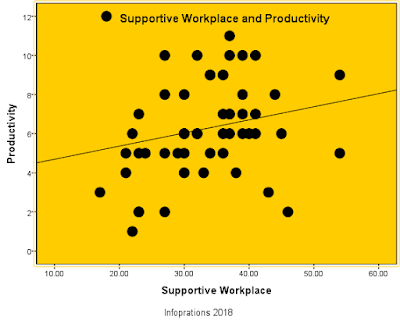The beauty
of any workplace for employees is to be conducive for daily activities. The
moment a workplace wears unfriendly outlook, productivity will diminish.
Companies’ performance will not be spared. Evidence
has shown that the way a workplace is planned and maintained has direct
influence on the health, well-being and productivity of staff.
Therefore,
the optimal functionality of any facility is an opportunity for every employee
to contribute significantly to the attainment of the companies’ strategic goals
and objectives. Indeed, "when the “facility” is operating perfectly, it is “facilitating”
work."
No doubt,
facilities managers have crucial roles to play in workplace development for employees.
The hard and soft facilities have to be maintained often to avoid strategic
breakdown of business operations at corporate, business and functional levels.
As simple as the temperature is, when it is at high or low rate, it has high
possibility of impacting businesses negatively.
For effective
productivity and operational cost reduction, companies need facilities
managers. FMs have specific roles to play in ensuring proper conditions of
facilities before, during and after working periods. Employees and C-suite
executives close from office every day. FMs do not enjoy this opportunity. It
is essential for them to be proactive not to be reactive to the needs of
facilities, seeking out products and solutions intended to boost employee
productivity is key.
FMs as Supportive Workplace Managers
In a twist of the
general title for FM professionals, the preliminary results of Infoprations’ Strategic Place of FM in
Nigeria shows that the title “Facilities Managers” being used in the
industry is not align with the strategic place and roles of FM.
As it is being
practiced in the developed FM markets, companies have two options when there is
a need for facility maintenance. There is client side or in-house facilities
managerial position. The core duty of in-house FM is to influence and gain
support of employees at the business and functional levels towards proper
maintenance of every facility. Another position in the industry is the supply
side facilities managers. They are from the facilities management companies on
the businesses’ request. They have “a dual role of delivering designated
services to the client while also managing the service company’s ‘bottom line’
to best corporate advantage.”
Despite the difference,
analysis shows companies are yet to realise that there is a strong connection
between supportive workplace, an office where facilities are being maintained using
supply side facilities managers who understand the needs of employees and
essence of reducing operational cost, and productivity.
Analysis further reveals
that the level of maintaining facilities in Nigeria is low. The result indicates
that facilities and maintenance are connected by 31.4%. This signifies low
prioritization of facilities maintenance in the country. This is likely to
impede supportive work environment and productivity of the employees.


Comments
Post a Comment